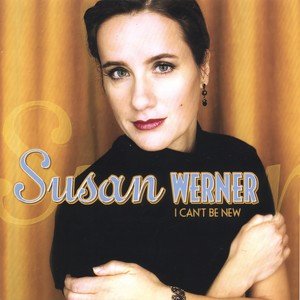
- 歌曲
- 时长
简介
With 6 albums under her belt, an active touring career throughout the U.S. and a string of accolades from the likes of The Washington Post, The Village Voice and The New Yorker, Susan Werner has become one of the defining artists of the folk music genre. Her songs effortlessly slide between folk, jazz and pop and are delivered with a sassy wit and classic midwestern charm. Farm girl Susan Werner was raised in rural Iowa but began her professional music career in Philadelphia, after studying classical voice at Temple University. Inspired by a Nanci Griffith concert, Werner left behind her opera training and began performing as a singer-songwriter at coffeehouses throughout the northeast. She self-released her first album "Midwestern Saturday Night" in 1992 and then went on to put out "Live at Tin Angel" the following year. In 1995 came her breakout album, BMG/Private Music's "Last of the Good Straight Girls," but a corporate reshuffle left her and her folk-pop masterpiece behind. Werner went on, recording two albums even better than her previous work, adding some country and soul sounds to her signature vocal stylings with the help of Nashville multi-instrumentalist and songwriter Darrell Scott, who produced "Time Between Trains" and Colin Linden (Blackie & The Rodeo Kings), who produced her 2001 "New Non-Fiction." Always ready to reinvent herself, in 2004 Susan Werner released her album of instant songbook classics "I Can't Be New" on Koch Records. For years she incorporated cabaret-style numbers in her live performances, exchanging her guitar for a piano (when there was one to be had), and she'd been asked by her audience to put all those songs in one recording. Fans and critics alike sang her praises: the All Music Guide calling it "a brilliantly constructed, soulful, and cleverly tender effort by a songwriter and musician who is in such complete command of her gifts that it's almost scary." In 2005 Susan Werner made a splash on satellite radio and in the blogosphere with her "alternative national anthem" entitled "My Strange Nation." For this song, Werner adopted the musical style of a battle hymn, and added lyrics that encompass both the poetry and hypocrisy innate to the United States. Early 2007 will bring the release of her latest endeavor, a yet untitled hymnal for the spiritually ambivalent. This collection of new material will include styles ranging from traditional bluegrass gospel, in songs such as "My Lord Will Trouble Me," to a hand clapping rouser for agnostics called "Probably Not." As Howard Reich, chief critic of the Chicago Tribune, wrote in 2006: "Werner is one of the most innovative songwriters working today." - Ellen Stanley







